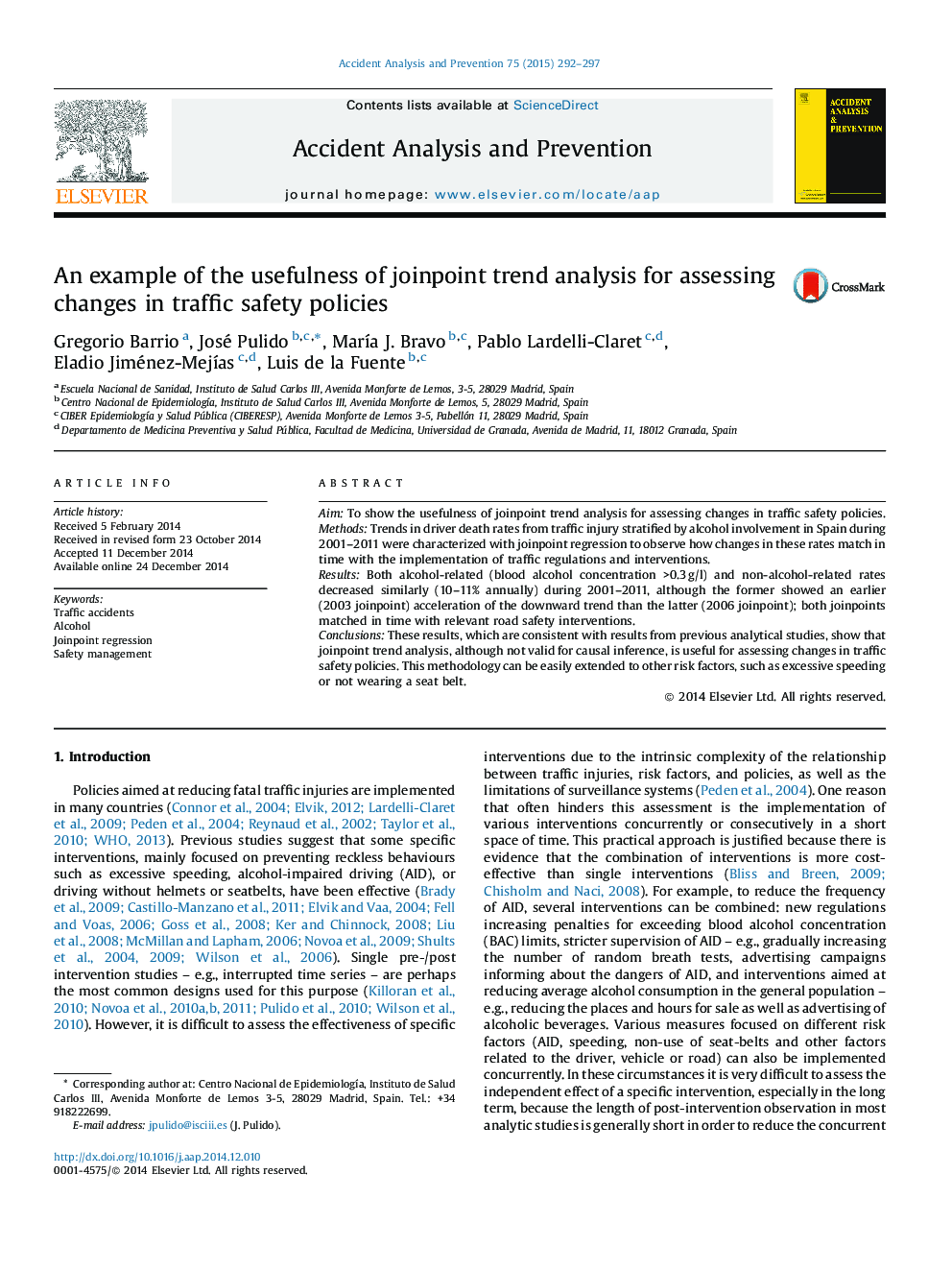| Article ID | Journal | Published Year | Pages | File Type |
|---|---|---|---|---|
| 572215 | Accident Analysis & Prevention | 2015 | 6 Pages |
•Driver deaths from traffic injury in Spain were analyzed with joinpoint regression.•Traffic injury death rates related and unrelated to alcohol show similar declines.•These declines accelerated in 2003 (alcohol-related) and 2006 (alcohol-unrelated).•Changes in the trend of these rates match in time with changes in traffic safety regulations.•Joinpoint regression may contribute to the assessment of traffic safety policies.
AimTo show the usefulness of joinpoint trend analysis for assessing changes in traffic safety policies.MethodsTrends in driver death rates from traffic injury stratified by alcohol involvement in Spain during 2001–2011 were characterized with joinpoint regression to observe how changes in these rates match in time with the implementation of traffic regulations and interventions.ResultsBoth alcohol-related (blood alcohol concentration >0.3 g/l) and non-alcohol-related rates decreased similarly (10–11% annually) during 2001–2011, although the former showed an earlier (2003 joinpoint) acceleration of the downward trend than the latter (2006 joinpoint); both joinpoints matched in time with relevant road safety interventions.ConclusionsThese results, which are consistent with results from previous analytical studies, show that joinpoint trend analysis, although not valid for causal inference, is useful for assessing changes in traffic safety policies. This methodology can be easily extended to other risk factors, such as excessive speeding or not wearing a seat belt.
